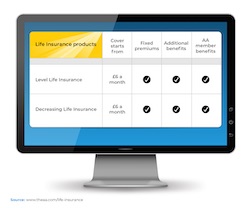What to do when someone dies – Part 2
Dealing with the deceased’s estate
In this article we continue the journey that you would started in the first few days after your loved one passed to organise your loved one’s estate. In our first article we explained the need to check for funeral insurance and also how to tell the appropriate authorities about the death.
Your next steps :
Check to see if there is a Last Will and Testament
A Will is an extremely important document and it leaves instructions for those we leave behind and may also provide useful information to help organise our estate. Even though your loved one may never have mentioned a Will, that doesn’t mean they haven’t left one. Normally the person named in their Will as the Executor should have a copy of the Will or may know where one is kept. It is worth checking with the family solicitor if they had one and also the bank if you can’t find a Will amongst their belongings.
If a Will can’t be found then there are laws that govern how the deceased’s estate will be treated and there is more information about this below.
Request a Grant of Representation
If you are the Executor named in the Will or a close relative if there was no Will, then you will need to decide if you need to seek a Grant of Representation. A Grant of Representation is not always required where the deceased’s estate is simple but can be essential with larger and more complex estates. Free advice is available to help you decide if you need to apply for a Grant of Representation – one such service is the Bereavement Advice Centre. They can give you free advice but if you want practical help with the processes then they’ll direct you to other organisations, but you will be charged for these services so please make sure you ask about charges up front.
Remember that you can apply for a Grant of Representation yourself. The GOV.UK explains how and provides the application forms in a downloadable format. The forms can be a little intimidating but if your loved one’s estate is relatively simple then with a little patience and a read of the guidance on the application forms, along with the free advice services, you should be able to complete the forms yourself. Once the forms have been sent off you will be asked to swear an oath which you can do at the Local Probate Office or with a Commissioner of Oaths (usually a Solicitor).
Notifications
You will need to arrange to tell all of the relevant organisations. When someone dies, there are some joint assets that automatically pass to the surviving joint owner. However, even with these you will need to tell the relevant institution about the death. To do this you will need to comply with each institution’s procedures – some like SunLife have incredibly easy procedures whilst others can be more arduous and may require copies of death certificates, the grant of representation and even copies of the deceased’s Will, so be prepared to have to jump through different hoops. It can be difficult to piece together which are the relevant institutions that you will need to contact – so here are a few obvious ones to think about:
- Banks
- Building Societies
- Council tax department
- Water, electricity, gas, telephone, mobile phone and other utility companies
- Mortgage company
- Life insurance company
- Employer
- Pension provider
It is a good idea to look through any bank or building society statements and cheque book stubs to see which companies have been being paid. We would always suggest looking through at least a year’s worth of this information so that you identify payments that happen monthly, quarterly and annually.
Make a list of all of these and write down all of the details you can find, then speak to each of them asking for details of the account or plan and any balances etc that are relevant. Organise any key documents you find and keep notes of what you’re told by each organisation to make things easier – you will potentially be referring to these notes and documents again and again in the next few weeks and months.
Claim Benefits
If the deceased has left a partner then they may be entitled to certain benefit, for example, Bereavement Allowance. If the deceased was drawing a pension then make sure that you contact the pension provider as there may be an entitlement to a widow or widower pension or child pension. Just because money continues to be paid to the deceased it does not automatically mean that any beneficiary or surviving partner are entitled to receive this money, so please make sure that you check or you could end up having to pay the money back.
Distributing the deceased’s estate in accordance with their Will
In order to do this there are a number of steps that you will need to take. This process can be hard work and can take weeks, month or even years in some instances! So, make sure that you are organised from the beginning and that you plan time to keep on top of the administration of this process each week to avoid it taking even longer than necessary.
By looking at the Will you can determine what needs to be done to allow you to carry out your loved one’s wishes. For example, if everything is to be left to a surviving spouse then you will not need to liquidate assets – they can simply be transferred into the spouse’s name. If there is no surviving spouse then you are more likely to have to liquidate the estate in order to distribute it in accordance with the Will.
Valuing of the estate
You will need to make a list of all of the assets and debts of the deceased as at the date of their death. You may need to obtain valuations for any properties or shares they owned, bank balances, savings balances, credit card balances, utility bills and so on
Inheritance Tax
Depending on the size of the deceased’s estate Inheritance Tax may be due as a result of the death – typically once an estate is over £325,000 then there may be tax to pay but this will still depend on circumstances. The calculation of Inheritance Tax can be complex but there is help and advice available on the GOV.UK site.
Cash In / Liquidate Assets
It can be difficult to distribute physical assets in accordance with a Will especially where the deceased has defined that a particular proportion of their estate be left to each of their beneficiaries. In these instances you will probably need to liquidate the assets so that they are in the form that is easily distributed to the beneficiaries – so you will need to arrange to sell tangible items such as the deceased’s house, car, household items and maybe even personal effects such as jewellery. You will also need to sell assets such as shares. Remember that in order to conduct some of these sales you will need to have a grant of representation.
Settle debts
Before you distribute the estate in accordance with the Will you need to make sure that you have settled all of the deceased’s debts – these could be mortgages, loans, utility bills, funeral costs, advisor and legal fees etc. It is always worth checking with other family members and friends to see if they are aware of any debts that need to be paid as there may be personal borrowings between family members that need to be settled too.
Distribute the Estate in accordance with the Will
If there is a Will then once you have liquidated the assets and settled all of the deceased’s debts including any inheritance and other taxes then you will be ready to distribute the estate in accordance with the Will. Make sure that you draw up a statement of the deceased’s assets and debts to show the total of the estate and show how the estate has then been split in accordance with the Will. Keep records of any payments made to beneficiaries including any physical items such as personal effects that the beneficiaries take ownership of.
If there is no Will then the law will determine how the estate is distributed – these are called the Rules Of Intestacy. These can lead to some unexpected outcomes that the deceased would not have wanted but it is not for you as the Executor to determine what is right – you have to comply with the law. The Citizens Advice Bureau offer a useful summary of the Rules of Intestacy.
Finally
The duty of being an Executor to someone’s Will can be onerous. It is entirely possible to learn what you need to do but it can feel hard at times. Make sure you take advice from all the free sources you can – and there are a lot of free sources of advice and information on the web. If you feel it is all too much then as Executor you can use the deceased’s estate to pay for the services of a professional to undertake all of the work for you – however, be aware that depending on the state of the financial affairs of the deceased, the complexity of their estate and whether a Will exists, the cost of this professional help can mount up. If you enlist professional help then always get them to confirm a cost before hand.






